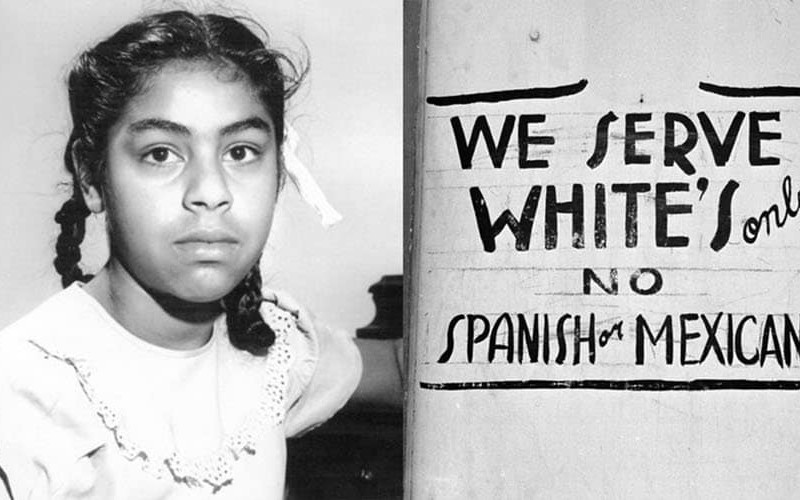Sylvia Mendez: The First Latina to Go to an All-White School
It’s hard to imagine that not that long ago, “all-white” schools were a reality. Fighting back against this blatant discrimination, a Mexican-American family paved the way for desegregation nationwide, making Sylvia one of the first Latinas to attend an all-white school.

This article is part of a series developed in partnership with Project Pulso.
When the tale of American civil rights unfolds, towering giants like Rosa Parks and Martin Luther King Jr. often take center stage. While their stories are indeed awe-inspiring and rightfully belong center-stage, it’s also vital to highlight the untold tales of heroism within the Latine community, and one such unsung heroine is Sylvia Mendez, whose journey paved the way for dismantling school segregation long before the renowned Brown v. Board of Education case.
On a sunny day on June 7, 1936, in Santa Ana, California, Sylvia Mendez, daughter of Puerto Rican and Mexican immigrants, opened her eyes to the world. Her parents, Gonzalo and Felicitas Mendez, were hardworking farmers, leasing their land from a Japanese-American family interned during World War II.
Aged only 8, Sylvia and her siblings encountered the bitter taste of racial discrimination in 1944. They were turned away from the local ‘whites only’ 17th Street Elementary School due to their Mexican-Puerto Rican lineage. Instead, they were directed towards the run-down, barely functional Hoover Elementary School, a makeshift “school” for Mexican American students.
Witnessing this stark discrimination enraged Sylvia’s parents. Determined to fight back, they launched a legal battle against the Westminster School District of Orange County in 1945. Alongside four other Mexican-American families, the Mendez’s spearheaded a class-action lawsuit, which symbolized the fight for 5,000 children in Orange County.
Their argument hinged on the violation of the 14th Amendment of the Constitution – equal protection under the law. Despite an initial setback at the local district court, they pressed on, taking the case to the Ninth Circuit Court of Appeals. After a long-drawn-out struggle, victory arrived in 1947, when the Court ruled in favor of the Mendez family, marking the first judicial verdict against school segregation in the United States.
This historic ruling set the stage for Brown v. Board of Education, the celebrated Supreme Court case that declared racial segregation in public schools unconstitutional seven years later in 1954.
Following this groundbreaking decision, Sylvia Mendez courageously stepped into uncharted territory as the first Latina student in an all-white school. Despite the landmark ruling, she faced a storm of hostility and prejudice from her classmates and teachers. Isolation, taunts, and name-calling became her daily companions.
Yet, Sylvia stood her ground, proving her worth and reinforcing her right to belong. As an adult, she pursued nursing, earning a degree from the prestigious University of California, Los Angeles (UCLA). She went on to serve as a dedicated nurse at the Los Angeles University of Southern California Medical Center for 30 years.
While Sylvia Mendez may not be a household name like other civil rights activists, her profound impact on American education is undeniable. In her later years, she passionately campaigned to spread awareness about her family’s pivotal role in ending school segregation and fostering educational equality.
In 2011, her lifelong dedication to equality and civil rights earned her the Presidential Medal of Freedom from President Barack Obama, the highest civilian honor in the United States. Her inspiring journey has been immortalized in the award-winning children’s book, “Separate Is Never Equal: Sylvia Mendez and Her Family’s Fight for Desegregation” by Duncan Tonatiuh.
Sylvia Mendez’s story is a beacon of perseverance, courage, and the relentless pursuit of equality. Her path-breaking entry into an all-white school symbolizes the ongoing struggle for educational equity and civil rights. Mendez v. Westminster not only altered her life but also laid the groundwork for ending racial segregation in schools nationwide. Sylvia Mendez is indeed a trailblazer who personifies the spirit of resistance against racial discrimination, carving out her deserving place in the pages of American civil rights history.




